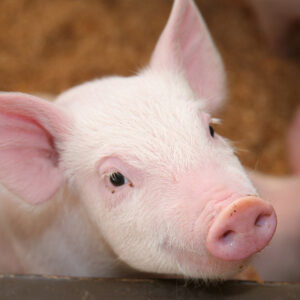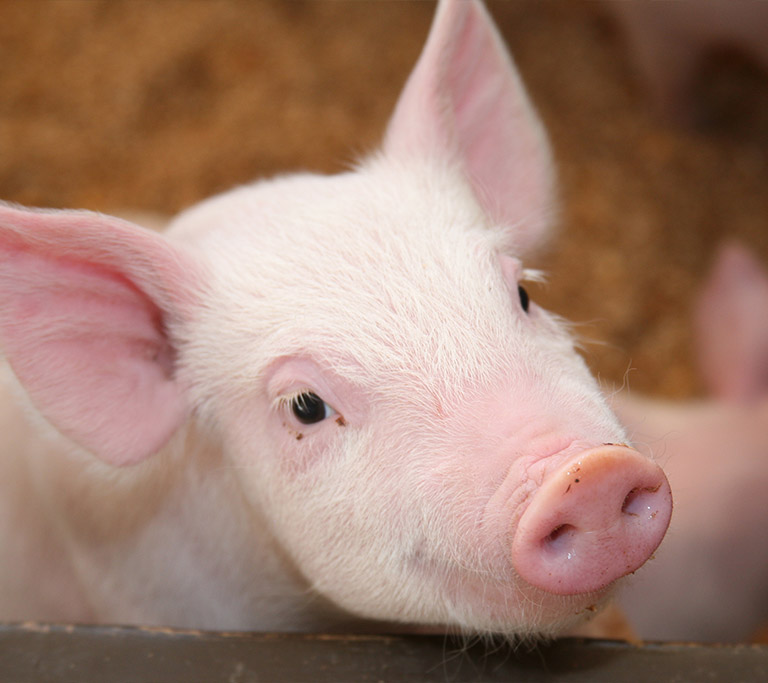


Phytase
Phytase is an enzyme that plays a crucial role in pig nutrition by aiding in the breakdown of phytic acid, a form of phosphorus that is indigestible to pigs. Including phytase in pig diets offers several benefits. Here’s an overview of the benefits of using phytase in pig diets:
- Improved phosphorus utilization: Phytase enables pigs to effectively utilize phosphorus from plant-based feed ingredients, such as grains and oilseeds, that contain high levels of phytic acid. Phytic acid forms complexes with phosphorus, making it unavailable for digestion and absorption. Phytase breaks down phytic acid, releasing phosphorus, which pigs can utilize. Improved phosphorus utilization reduces the need for inorganic phosphorus supplementation and minimizes the environmental impact of phosphorus excretion.
- Enhanced mineral utilization: In addition to phosphorus, phytic acid can bind to other minerals such as calcium, zinc, iron, and manganese, rendering them less available for absorption. By degrading phytic acid, phytase improves the utilization of these minerals, promoting optimal mineral absorption and reducing the risk of mineral deficiencies in pigs.
- Improved feed efficiency: Phytase supplementation can improve pigs’ feed efficiency. By releasing more phosphorus and other minerals from plant-based feed ingredients, phytase enhances the nutrient availability in the diet. This supports better nutrient utilization and conversion of feed into body weight gain, resulting in improved feed efficiency.
- Reduced phosphorus supplementation: Phytase supplementation allows for a reduction in inorganic phosphorus supplementation in pig diets. This is particularly beneficial from an environmental perspective, as excessive phosphorus excretion can contribute to water pollution. By enhancing phosphorus utilization, phytase helps to minimize the need for additional phosphorus supplementation while maintaining optimal growth and performance.
- Environmental sustainability: Phytase supplementation promotes environmental sustainability in pig production. Reducing the reliance on inorganic phosphorus supplementation helps minimize the environmental impact associated with phosphorus runoff, which can contribute to eutrophication of water bodies. Phytase plays a vital role in reducing phosphorus waste and improving overall sustainability in pig farming.
It’s important to note that the inclusion level of phytase in pig diets should be based on factors such as the pig’s age, diet composition, and specific phosphorus requirements. Consulting with a swine nutritionist or veterinarian can provide specific guidance on the appropriate use of phytase in pig nutrition and ensure optimal benefits. Phytase in pig diets enhances phosphorus and mineral utilization, improves feed efficiency, reduces phosphorus supplementation, and promotes environmental sustainability. Phytase is a valuable enzyme that contributes to efficient nutrient utilization, reduced environmental impact, and improved performance in pig production.




